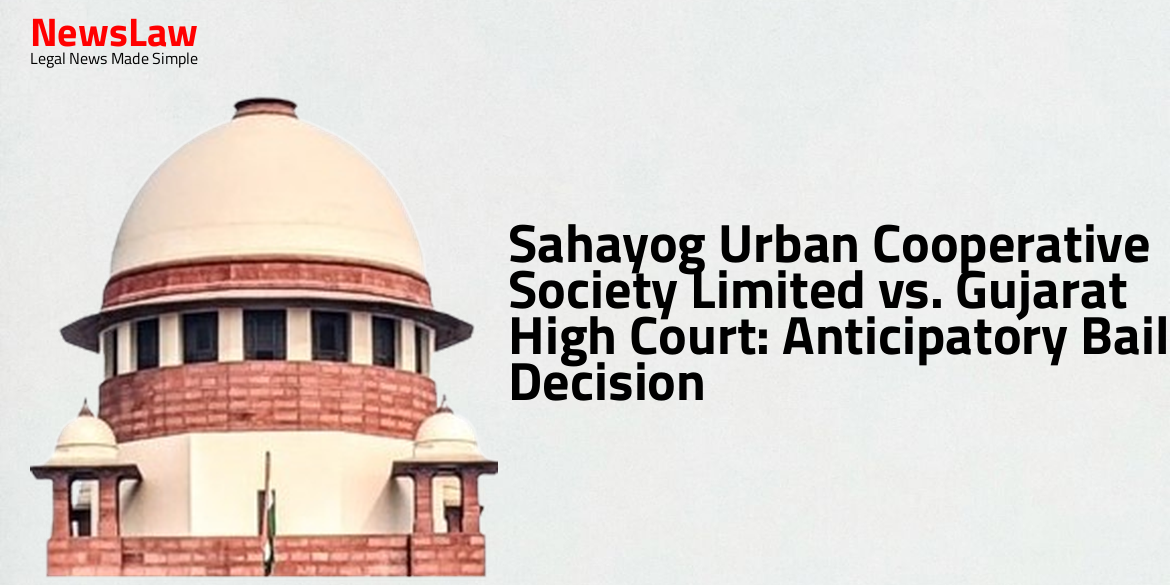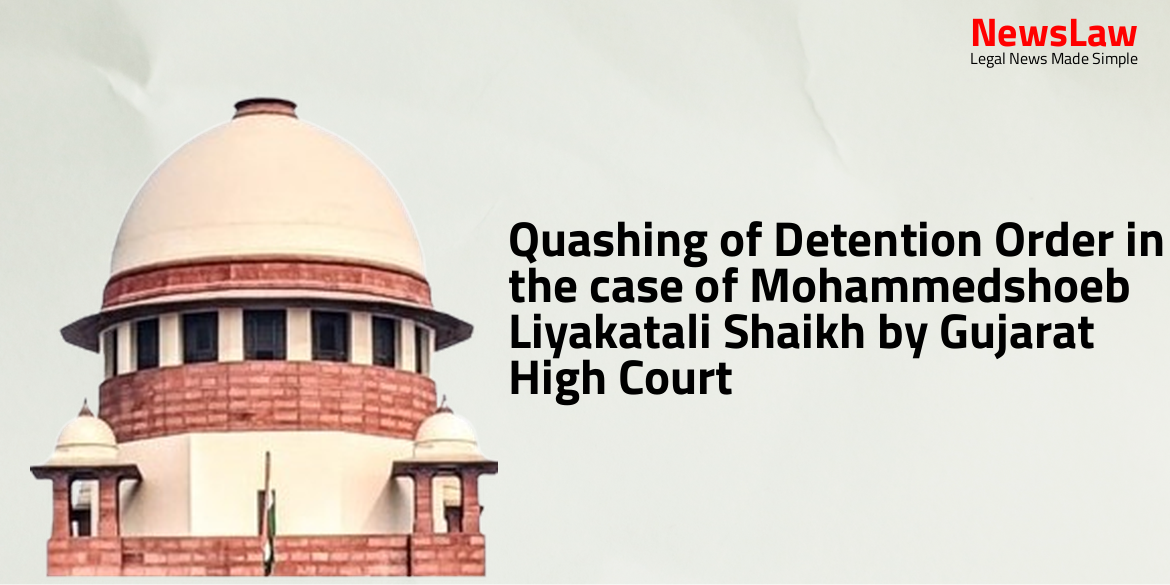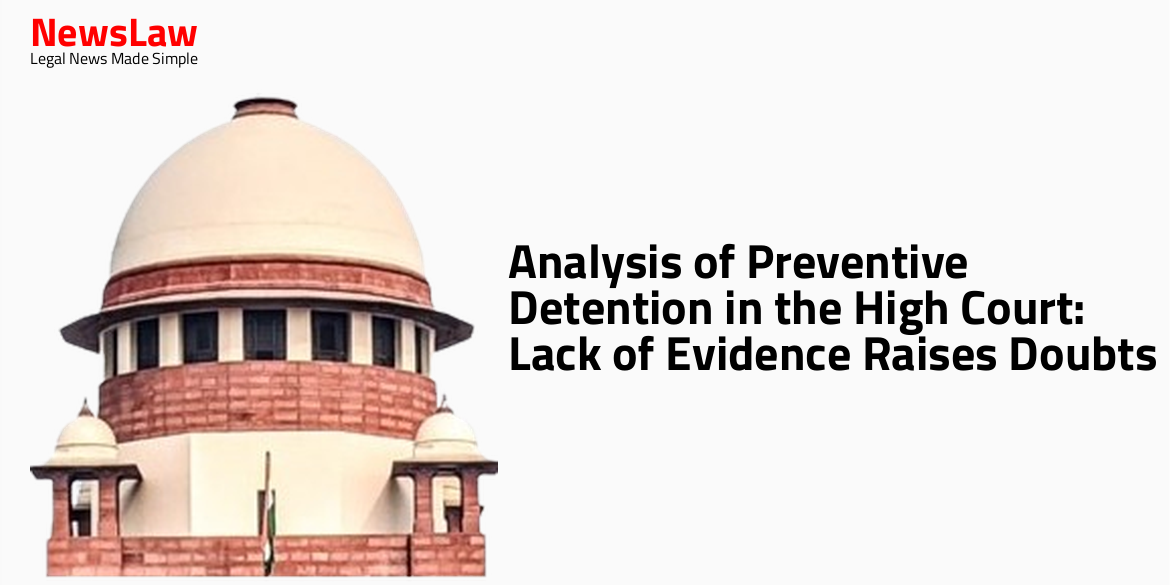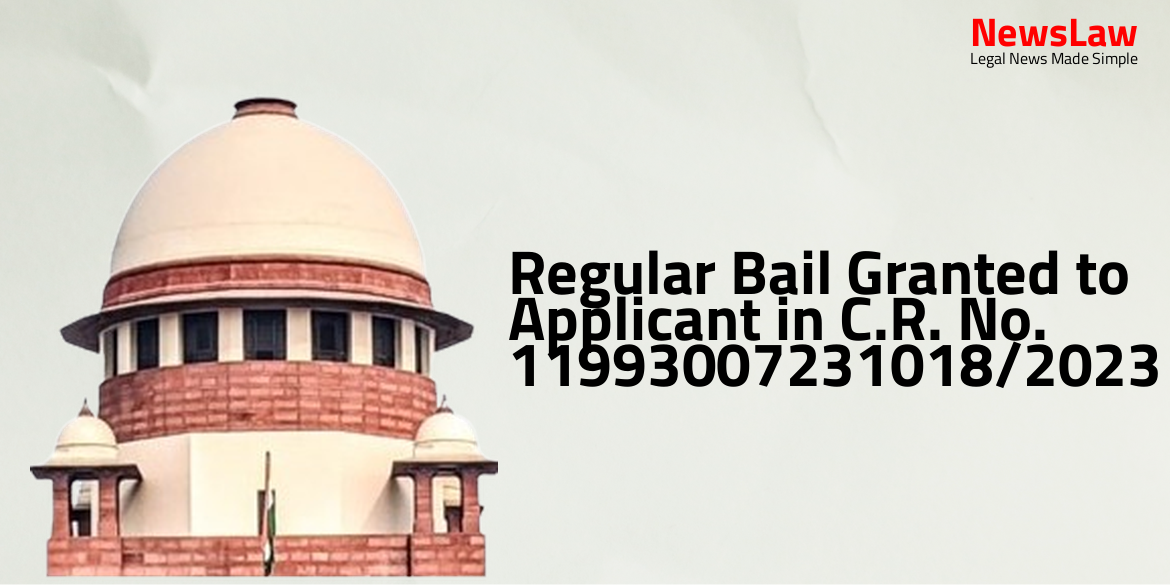The legal battle between Sahayog Urban Cooperative Society Limited and the Gujarat High Court has reached a critical juncture. The case revolves around the decision on anticipatory bail and its implications. Stay tuned for a detailed analysis of the court’s ruling and its impact on the Cooperative Society. #LegalCase #GujaratHighCourt #AnticipatoryBail #CooperativeSociety
Facts
- The Sahayog Urban Cooperative Credit and Consumer Society Limited is a registered cooperative society under the Gujarat Cooperative Societies Act, 1961.
- The society has been classified as Class-B in the audit report by the Circle Auditor, Mr. H.V. Danecha.
- No specific allegation of defalcation has been made against any individuals in the audit report.
- The society is located in Surat and operates by obtaining deposits at a high interest rate and providing loans to its members.
- The audit of the society’s books and accounts was carried out by the Auditor appointed by the District Registrar for the period April 01, 2019 to March 31, 2023.
- The special report highlighting the alleged activities of the office bearers of the society was made by the Auditor.
- An FIR has been lodged based on the special report despite no specific allegations of individuals committing offences.
Arguments
- The petitioner’s advocate argues that the FIR is politically motivated and the petitioner did not siphon any funds from the society.
- It is highlighted that the audit report does not accuse the petitioner of defrauding the society but rather shows weak financial conditions.
- The petitioner’s involvement in paying higher interest to known depositors is framed as a decision taken by the Board of Directors and not an act of fraud.
- Allegations of wrongful expenses and causing losses to the society are deemed baseless and unsubstantiated against the petitioner.
- The advocate emphasizes that the petitioner has deep roots in the society, no antecedents, and is willing to cooperate with the investigation.
- On the opposing side, it is argued that the petitioner fabricated documents and used them to commit the offense of embezzlement, thus negating the request for anticipatory bail.
- The respondent argues that the FIR in this case was filed based on a direction under section 93 of the Act.
- The respondent’s advocate, Mr. BM Mangukiya, contends that if the FIR was initiated based on an audit report, it should be considered as misfeasance rather than a criminal act.
- He asserts that the petitioner’s actions were unintentional and should not be deemed as malfeasance.
- Specific allegations have been made against the petitioner, necessitating custodial interrogation according to the respondent’s submission.
- The respondent requests the court to dismiss the petition based on these arguments.
Analysis
- Judicial discretion must be properly exercised considering the gravity of the accusation and other factors when deciding on anticipatory bail.
- The nature and purpose of a Cooperative Society revolves around self-help and mutual support.
- Economic offenses impact the economic fabric of society and thus require careful consideration in bail decisions.
- Section 438 of CrPC should only be invoked in exceptional cases, especially for economic offenses.
- Allegations suggest extensive defrauding of the Society by the Managing Body over a significant period.
- Granting anticipatory bail in economic offenses can impede effective investigation processes.
- The accused’s actions have significantly harmed the Cooperative Society internally.
- The court should be cautious in granting anticipatory bail, especially in cases of economic offenses.
- The act of the accused is likened to a termite hollowing out the Society.
- The denial of anticipatory bail does not equate to a denial of fundamental rights under Article 21 of the Constitution of India.
- Some accused have been granted bail based on depositing amounts higher than the alleged defraud, but caution is urged due to the number of individuals involved in the Managing Body fraud.
- Grant of anticipatory bail may hamper the investigation.
- Power under section 438 of the Code is an extraordinary power and must be exercised sparingly in appropriate cases.
- Pre-arrest bail aims to strike a balance between individual’s right to personal freedom and the investigating agency’s need to collect relevant information.
- Anticipatory bail may frustrate the investigating agency in interrogating the accused and collecting useful information.
- Success in interrogation may be hindered if the accused feels protected by a court order.
- Arrest is a part of the investigation procedure to secure the accused’s presence and achieve other investigative purposes.
- Judicial discretion must be properly exercised considering the nature and gravity of the accusation, possibility of the applicant fleeing from justice, and other relevant factors.
- Granting anticipatory bail is a discretionary relief.
- In this particular case, the court does not find it appropriate to exercise that discretion.
- The grant of bail would not benefit the petitioner’s case.
- The circumstances of the case do not warrant the extraordinary relief of anticipatory bail.
Decision
- The petition was found to be lacking in merit.
Case Title: MANGUKIYA ARVINDBHAI LAXMANBHAI Vs. STATE OF GUJARAT
Case Number: R/CR.MA/6698/2024



